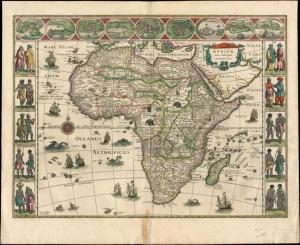| Author: | Thomas Morris Longstreth | ISBN: | 9781465525703 |
| Publisher: | Library of Alexandria | Publication: | March 8, 2015 |
| Imprint: | Language: | English |
| Author: | Thomas Morris Longstreth |
| ISBN: | 9781465525703 |
| Publisher: | Library of Alexandria |
| Publication: | March 8, 2015 |
| Imprint: | |
| Language: | English |
FORECAST Science is certainly coming into her own nowadays,—and into everybody else’s. Every activity of man and most of Nature’s have felt her quickening hand. Her eye is upon the rest. Drinking is going out because the drinker is inefficient. The fly is going out because he carries germs. And for everything that goes out something else comes in that makes people healthier and more comfortable, and, perhaps, wiser. One strange thing about this flood-tide of science is that it overwhelms the old, buttressed superstitions the easiest of all, once it really sets about it. For instance, nothing could have been better fortified for centuries than the fact that night air is injurious and should be shut out of house. Then, science turned its eye upon night air, found it a little cooler, a trifle moister, and somewhat cleaner than day air with the result that we all invite it indoors, now, and even go out to meet it. Once interested in the air, science soon began to take up that commonplace but baffling phase of it called the weather. Now, of all matters under the sun the weather was the deepest intrenched in superstition and hearsay. From the era of Noah it had been made the subject of more remarks unrelieved by common sense than any Other. It was at once the commonest topic for conversation and the rarest for thought. Considering the opportunities for study of the weather this conclusion, we must admit, is more surprising than complimentary to the human race. But it is so. The fact that science had to face was this: that the weather had been and remained a tremendous, dimly-recognized factor in our level of living. So talk about it all must. And science set about finding some easy fundamental truths to talk instead of the hereditary gossip about old-fashioned winters or the usual meaningless conversational coin. Two groups of men had always known a good deal about the weather from experience: the sailor had to know it to save his life, and the farmer had to cultivate a weather eye along with his early peas. But the ordinary business man (and wife), the town-dweller, and even the suburbanite knew so few of the proven facts that the weather from day to day, from hour to hour, was a continual puzzle to them. The rain not only fell upon the just and unjust but it fell unquestioned, or misunderstood
FORECAST Science is certainly coming into her own nowadays,—and into everybody else’s. Every activity of man and most of Nature’s have felt her quickening hand. Her eye is upon the rest. Drinking is going out because the drinker is inefficient. The fly is going out because he carries germs. And for everything that goes out something else comes in that makes people healthier and more comfortable, and, perhaps, wiser. One strange thing about this flood-tide of science is that it overwhelms the old, buttressed superstitions the easiest of all, once it really sets about it. For instance, nothing could have been better fortified for centuries than the fact that night air is injurious and should be shut out of house. Then, science turned its eye upon night air, found it a little cooler, a trifle moister, and somewhat cleaner than day air with the result that we all invite it indoors, now, and even go out to meet it. Once interested in the air, science soon began to take up that commonplace but baffling phase of it called the weather. Now, of all matters under the sun the weather was the deepest intrenched in superstition and hearsay. From the era of Noah it had been made the subject of more remarks unrelieved by common sense than any Other. It was at once the commonest topic for conversation and the rarest for thought. Considering the opportunities for study of the weather this conclusion, we must admit, is more surprising than complimentary to the human race. But it is so. The fact that science had to face was this: that the weather had been and remained a tremendous, dimly-recognized factor in our level of living. So talk about it all must. And science set about finding some easy fundamental truths to talk instead of the hereditary gossip about old-fashioned winters or the usual meaningless conversational coin. Two groups of men had always known a good deal about the weather from experience: the sailor had to know it to save his life, and the farmer had to cultivate a weather eye along with his early peas. But the ordinary business man (and wife), the town-dweller, and even the suburbanite knew so few of the proven facts that the weather from day to day, from hour to hour, was a continual puzzle to them. The rain not only fell upon the just and unjust but it fell unquestioned, or misunderstood















